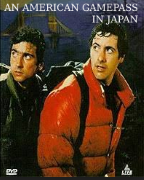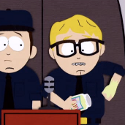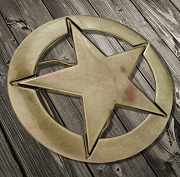|
Brinty posted:I think the one problem with that is that it's much easier in a tabletop game to fudge things, party seem underpowered? knock some damage off the monster's attack values or it's health. Party seem Overpowered and too optimized? Make it a smidge stronger etc. There's also an argument to be made that too many choices, especially overlapping options or choices with unclear long term effects, is actually worse than having a few and well-designed options. Branching off into other games, chess even has a slang term for a similar sort of problem. ProfessorCirno posted:Basically, Mearls isn't actually interested in the rules of the game. He wants to tell the D&D story or share the "D&D experience." So you get gems like "People complained that fights were boring, but we're ok with that because they're fast and can move on to other stuff."
|
|
|
|

|
| # ? Jun 11, 2024 06:10 |
|
"Our mechanics are so bad that people look forward to not using them", is not exactly high praise for the product. Okay, I get it, I'm being overly cynical. He's not actually saying that. He's saying that combat is just an experience, one among many, and if a character doesn't really enjoy fighting, he can quickly move on to other things that are not fighting. It doesn't say much for people who do enjoy fighting, though.
|
|
|
|
Mendrian posted:"Our mechanics are so bad that people look forward to not using them", is not exactly high praise for the product. Also doesn't help that the combat rules are something like 75% of all the rules in any DND game, and if they are bad it means 75% of your rules are bad.
|
|
|
|
Yeah, that's just a baffling attitude to take, really. Outside of maybe OD&D, fantasy fightin' is the raison d'etre of D&D, it is a game about teaming up with pals and tear-assing through a world full of monsters and treasure. I absolutely don't think that means D&D should be all combat all the time and I strongly feel that D&D should provide solid support for things like exploration, social shenanigans, and even more than a token nod to things like mass warfare or domain management...but a D&D that has lovely, boring combat rules is almost guaranteed to be a lovely, boring D&D. Fighting is the one commonality you are likely to see shared across 99% of all D&D games ever, why would you not do your best to make that as fun and exciting as you possibly can?
|
|
|
|
It's...kinda interesting how it's played out. Essentially D&D has mostly been about fighting rules. But they've traditionally stank, especially in 3e. Right now you are wondering "but there's nothing to replace them with, what's the point?" From what I've seen in forums, conversations, or from a few games I've played, I'd say that's the point. It's the dirty secret behind a lot of the verisimilitude arguments. These people are not playing the game. Oh sure, they're getting together in groups and pretending to be elves and whatnot. But they're not using the rules, most of the time. There's a LOT of freeform roleplaying hiding behind a DMG. The catch is that they want the rules (that they don't use) to remain the same. So how do you cater to this? Really, thats the problem that hit 4e - WotC more or less discovered that a lot of D&D customers rarely actually play the game. They don't want working mechanics. They want mechanics that sound cool, and often times those two don't work well together. It's one of the big arguments for 3e style multiclassing - "what if my character suddenly becomes religious? I can just take one level in cleric when I next level up!" It's been pretty well argued that this is loving stupid and nobody would actually do this. But it's really, really nice to think about. That could very well just be the end statement, really: They don't want mechanics that work, they want mechanics they can read about.
|
|
|
|
ProfessorCirno posted:It's...kinda interesting how it's played out. I've argued heavily that the irony about D&D fans (of all editions) is that a lot of people playing would enjoy a different system but can't/won't go out and play it. As a result they want to keep making sure they can do what they are doing. Then again I think combat has been boring in all editions of D&D so I'm probably the worst target for the product. Its a game far too big and popular for it to actually fulfill the wants of its players so I honestly don't know how they can change things. EDIT: This is probably made infinitely worse given how roleplaying games are designed so they you can generate new content without an external factor outside your control. If it keeps things the same, nobody buys it because they like what they have. If they change it, nobody buys it because they like what they have. kingcom fucked around with this message at 05:15 on Apr 5, 2013 |
|
|
|
Also you can totally have a great time just hitting things til they die without any tactics at all. The excitement can come from the risk of your character being killed by that giant rat without there being any interesting decisions made during combat. The idea that combat should be about tactical decisions is not universal.
|
|
|
|
Jimbozig posted:Also you can totally have a great time just hitting things til they die without any tactics at all. The excitement can come from the risk of your character being killed by that giant rat without there being any interesting decisions made during combat. The idea that combat should be about tactical decisions is not universal. ...really? If you don't want tactical decisions in , you might as well set a Combat Skill for each character and a Combat Difficulty for each encounter, and then roll to see if you pass it or not so you can get on with whatever it is you're doing that's not combat. I'm not being sarcastic. Having a complicated combat system with no decisions to make is stupid as hell.
|
|
|
|
AlphaDog posted:...really? Some people (crazy people) like games where all the number crunching is done before combat and combat is more just a demonstration of how well you did beforehand. Not that this is whats going to happen but its not a completely invalid playstyle. This talk about free combat makes me wish Feng Shui didn't go out of print. That was such an awesome game that actually provided mechanics for freeform combat.
|
|
|
|
kingcom posted:Some people (crazy people) like games where all the number crunching is done before combat and combat is more just a demonstration of how well you did beforehand. Not that this is whats going to happen but its not a completely invalid playstyle. Oh, I'm not saying it's invalid. I can think of a few genres where that'd probably be a real benefit to the system. It's just super weird to bring it up in a discussion of D&D, a system based around swords-and-sorcery combat.
|
|
|
|
AlphaDog posted:Oh, I'm not saying it's invalid. I can think of a few genres where that'd probably be a real benefit to the system. Maybe you just don't understand what pure D&D is.... By that I mean every group seems to do something so completely different with it that everything is going on when it comes to modifying the ruleset.
|
|
|
|
Maybe I don't, but I've played with a lot of groups, and I've never seen combat simplified down to the point where there are no tactical decisions to be made. We've played CoC like that though, and it was pretty cool. Also Dread is built such that combat is no more or less difficult or complex than any other action you could take at that particular point. I'm not arguing against it as a system, but I have literally never seen a D&D game without some kind of tactical decision making in combat.
|
|
|
|
I'm obviously a fan of 4E and I think it did a very good job of making small-scale fantasy monster battles fun, but it's only one way to go about it and certainly not the only way to make combat fun. Combat doesn't have to be "gridmap and movement"-esque tactics to be fun. I would argue that fun combat should involve some sort of tactics or meaningful moment-to-moment decisions, but I feel like fun anything in a game should involve that sort of thing, otherwise what else is there? But combat in Next so far has basically been extremely swingy rocket tag that's over quickly (barring poo poo like 16 individual rats with advantage...is that still a thing that exists, by the way?) because one side either waffle-stomps the other or gets stomped in return and "tactics" boil down to "get'em!" Quick or measured, mapped or "theater of the mind," combat in Next is just not very interesting so far. And to be fair combat in a number of games isn't very interesting either...I can't recall playing a World of Darkness game where I was ever super amped-up about combat even though I really dig Hunter: the Vigil, for instance...but D&D is, y'know, D&D, it is supposed to be the big king daddy RPG with actual salaried designers working on it, I expect a little bit more from it (well I actually don't realistically expect more from it, ostensibly that should be the case but I'm aware that won't actually be the case).
|
|
|
|
AlphaDog posted:Maybe I don't, but I've played with a lot of groups, and I've never seen combat simplified down to the point where there are no tactical decisions to be made. Without having seen it myself, I still feel confident taking a stab and saying people just want and do run around smacking stuff with their weapons without thought or logic. Seems like that is an option with 4th ed (though I'm just shooting in the dark here) given how it seems you cant make a character incapable of just killing stuff if you want to. Particularly if you ignore a lot of movement and/or dont use a grid. The thing is, people rarely seem to be breaking out of their general cliches of player/styles. I mean that in a super vague and general sense. The common example is the pro 3.5 cliche versus say a pro 4th cliche. This forum is full of 4th ed fans so everyone gets echo chamber'y with how to play based on that collective mindset. RPG Net are pro 3.5 (i think?) so the same result happens with that. Thus its very easy for most people to start looking at how 'everyone' plays/likes this particularly game or style. It funny how despite the technology being there to share how everyone is playing differently, everyone just ends up in ideological camps anyway.
|
|
|
|
kingcom posted:Particularly if you ignore a lot of movement and/or dont use a grid. Ignoring the grid in 4e means ignoring like half the rules. For better or worse it is an inseparable part of the core mechanics.
|
|
|
|
axelsoar posted:Ignoring the grid in 4e means ignoring like half the rules. For better or worse it is an inseparable part of the core mechanics. Ehhhhhhhhhhhh. If people could play 3.X without using a map and minis, which a lot of people apparently did, I'm reasonably certain that 4E shouldn't provide much more of a challenge in that regard.
|
|
|
|
While I agree that 4e IS bound to the grid, I feel you could make a combat system that utilized tactics without requiring a grid. Indeed, I think something like FATE's zones could work well there, even informally done. The caveat is the game has to be built for it. So far D&D Next is built for grid while asking you not to use it.
|
|
|
|
I'm starting to get the impression that the combat is intentionally swingy because of Theater Of The Mind. It's easier to evoke the dramatic feel when you can get radical shifts in the flow of battle, and being able to bring down enemies quickly makes it easier to keep mental track of the threats in the room. My last session was a boss fight that seems fairly standard: party walks in, there's a priestess and two henchmen, we engage, and in the middle of the second round skeletons bust out and surround most of us. That's a dramatic moment in the narrative, when things are looking grim for the heroes and they'll need to figure out what they're going to do - especially when the first henchmen they killed the previous round rose to his feet to continue fighting once more! Since we're using a battlemap to lay out everyones' positions, the DM had just put down the 10 or so undead miniatures. Then the Cleric uses Turn Undead, and poof! They're not destroyed, but they're Turned and effectively harmless. When they come up in the initiative order again, the DM just pulls them off the board because they're just going to spend the rest of combat running and/or cowering. It's fairly obvious how ridiculous it is when you just cleared half the enemies off the map, but for Theater Of The Mind it's simply another dramatic narrative moment - the Cleric, with a moment of divine inspiration and power, wards away the undead and rallies the party so they may focus on the true evil! Rest of the fight goes quickly after that. We figure out that we were supposed to use our MacGuffins on some smaller altars to weaken the big evil altar. The priestess and henchmen kept getting back up after we knock them down (we surmise because of the proximity of the evil altar), but a Sleep spell took care of that. There were a couple undead that were out of range of the initial Turn Undead (I can see that going either way in a true TOTM session) and they were getting back up after we beat them down too, but a second Turn Undead solved that problem. End result? Fairly easy encounter. One guy went down because he played risky but kept rolling terribly, and another guy went down because he was tanking all the dudes who kept getting back up, but neither were ever in any real serious danger of actually dying. It was pretty clear we had the thing in the bag by round 3 or 4, and the rest was just cleanup and walking the MacGuffins to their receptacles. For Theater Of The Mind though, it was probably a great fight. There was the evil cleric that displayed powerful magics that singlehandedly felled a character and mentally dominated another, a moment of despair as most of the party was surrounded by undead, the Cleric's moment of triumph as the undead were sent packing, the Wizard's moment of triumph as he incapacitates the foes that refused to remain dead. You can really play up those moments in TOTM, especially if you continue to refer back to them as the combat continues and players ask what the situation currently looks like.
|
|
|
|
axelsoar posted:Ignoring the grid in 4e means ignoring like half the rules. For better or worse it is an inseparable part of the core mechanics. That was literally my point. People are playing radically different things to eachother using radically different rules... Kai Tave posted:Ehhhhhhhhhhhh. If people could play 3.X without using a map and minis, which a lot of people apparently did, I'm reasonably certain that 4E shouldn't provide much more of a challenge in that regard. I've never actually played a roleplaying game with a grid...so yes? I'm not getting how grid or no grid makes the fight more or less engaging. Are you saying people treat it like a wargame with a grid? Seems like you just had a scenario where the right party member had the right ability and used it in the right encounter to trivialise it. kingcom fucked around with this message at 07:40 on Apr 5, 2013 |
|
|
|
Kai Tave posted:But combat in Next so far has basically been extremely swingy rocket tag that's over quickly (barring poo poo like 16 individual rats with advantage...is that still a thing that exists, by the way?) Small Strange Bird fucked around with this message at 09:03 on Apr 5, 2013 |
|
|
|
Goddamn, seriously? That's still in there? What in the absolute gently caress.
|
|
|
|
ProfessorCirno posted:While I agree that 4e IS bound to the grid, I feel you could make a combat system that utilized tactics without requiring a grid. Indeed, I think something like FATE's zones could work well there, even informally done.
|
|
|
|
ProfessorCirno posted:They don't want mechanics that work, they want mechanics they can read about. I wanted to come back to this because it's a real important point about a lot of RPGs. This is also the primary reason why people defend Masquerade so angrily on forums. For the most part people talk about the 'depth' of that game based on the metaplot. There are a lot of valid reasons to like Masquerade. There are a lot of valid reasons to prefer it over Requiem. There are even valid reasons to like the metaplot, specifically. Yet there is a special class of 'player' who has clearly spent more time memorizing the events of the metaplot than playing the game. Which is funny, because metaplot stuff mostly happens at a layer so far above the average play space that it doesn't actually impact the game. For those who are unfamiliar, Masquerade has a complicated, comicbook-esque plot mostly dealing with its god-like NPCs that advanced each time a new book was released. Legacy rules, 'optional' rules, are much the same. How many 3.X games have been played with no Attacks of Opportunity? How many of them don't properly use encumberance? How many ignore the hard-coded DCs in the DMG, ignore CR, etc? How many of all AD&D games use the reaction table, or ignored spell components, etc etc? It's a little different than the metaplot example (one deals with drama, the other, mechanics) but it's still similar. It's about stewing on the new product, mulling over the rules in your head, allowing yourself to be captivated by hypotheticals. And that sounds great on paper. Until you realize that it bears almost no relationship to actually playing a game. People like to talk about games. It shouldn't be a surprise that the places we argue about games (forums) tend to attract people who like arguing about games more than playing them. Next will be no exception.
|
|
|
|
Mendrian posted:Legacy rules, 'optional' rules, are much the same. How many 3.X games have been played with no Attacks of Opportunity? How many of them don't properly use encumberance? How many ignore the hard-coded DCs in the DMG, ignore CR, etc? How many of all AD&D games use the reaction table, or ignored spell components, etc etc?  ) probably meant they were used even less often than the grappling rules. ) probably meant they were used even less often than the grappling rules.
|
|
|
|
Edit: Never mind, misread something.
|
|
|
|
Payndz posted:Has anyone ever played a game of D&D, of whatever edition, precisely to RAW? Even in B/X, I don't remember anyone ever bothering with spell components, and the faff of checking 1e's AC and damage modification tables of weapons against various types of armour and sizes of opponents ("Hey, Gary, why not split the combat tables between two books?" I did to the best of my ability. As one of the other threads revealed I screwed up some of the rules but 10 year old me was determined to follow every rule in the book as far as possible. I figured they were adults and had designed the game so clearly they had put more effort into the rules than a 10 year old would. A few sessions of 1e's damage tables changed that viewpoint really fast. I still like games whose RAW is functional when I read it even if I know I'll probably change some stuff every once in a while.
|
|
|
|
Payndz posted:Has anyone ever played a game of D&D, of whatever edition, precisely to RAW? Pathfinder Society is fairly popular.
|
|
|
|
As is Living Forgotten Realms in 4e. Though, an AWFUL lot of tables don't keep to the letter of the rules, and LFR doesn't use the complete RAW anyway, so YMMV on this particular argument.
|
|
|
|
fatherdog posted:Pathfinder Society is fairly popular.
|
|
|
|
gently caress, just about everything about this announcement annoys or worries me: http://community.wizards.com/go/thread/view/75882/29846981/DD_Next_Character_Sheet_Contest?post_num=1#531015345 That there's a contest to design character sheets at all makes me worry that they think they're close enough to finished to be able to design them. That it's exclusive to the USA and Canada is irritating, but all their competitions are, and there's a legal reason for it IIRC, so it's annoying but livable-with. E: Enforcing the use of an outdated and lossy format for the submissions as images, rather than allowing people to submit functional designs in PDF, or lossless work in PNG is also quite annoying. That the document seems not to have been proofed at all (the judging adds up to 75%, and the judges are illusive (rather than what I assume they meant which is elusive) is really worrying. Why do I have the horrible feeling that this ridiculously dragged-out process is now going to be rushed through to a painful conclusion this year?
|
|
|
|
They've been demoing Next and receiving the expected praise from the expected people. It's presumably getting harder for the design team to justify their jobs while the only feedback they're still getting is (presumably) positive. I'm assuming they're still getting positive feedback. By now, anyone unhappy with (or even lukewarm on) Next's direction is probably tired of being ignored and moved past sending in reports or sitting-in on convention demos. I'm not sure how apt a comparison this is, but I imagine we're in a Matrix Part 3 bubble, where the audience is exclusively "people who weren't driven off by Part 2."
|
|
|
|
isndl posted:Since we're using a battlemap to lay out everyones' positions, the DM had just put down the 10 or so undead miniatures. Then the Cleric uses Turn Undead, and poof! They're not destroyed, but they're Turned and effectively harmless. When they come up in the initiative order again, the DM just pulls them off the board because they're just going to spend the rest of combat running and/or cowering. It's fairly obvious how ridiculous it is when you just cleared half the enemies off the map, but for Theater Of The Mind it's simply another dramatic narrative moment - the Cleric, with a moment of divine inspiration and power, wards away the undead and rallies the party so they may focus on the true evil! Emphasis mine. So, in order, I see a Cleric, a Wizard, a Rogue (probably) and a Fighter (probably). Casters use their abilities to win/invalidate fights while "mundane" characters get to die while attempting to play janitor. I know this wasn't the point of your post, but this could basically be dndnext.txt at this point E: ProfessorCirno posted:They don't want mechanics that work, they want mechanics they can read about. This probably explains why my grognard DM has such a hardon for Hackmaster and Rolemaster and why I can't stand them. P.d0t fucked around with this message at 15:27 on Apr 6, 2013 |
|
|
thespaceinvader posted:That the document seems not to have been proofed at all (the judging adds up to 75%, and the judges are illusive (rather than what I assume they meant which is elusive) is really worrying.
|
|
|
|
|
P.d0t posted:This probably explains why my grognard DM has such a hardon for Hackmaster and Rolemaster and why I can't stand them. Hackmaster (4e at least) is a very oldschool system that's been done very well. Hackmaster caters to the exact sort of player Next is trying to cater to*, but does it in a way that produces a game that's not apologetic for being a retroclone. It's got the gritty thing, it's got the "D&D feel", and it's got shitloads of verisimilitudinous stuff that also works mechanically. Oh, and it's hard to learn, rewards system mastery. I should do another writeup for it, actually. I found my notes about which rules to ignore if you want "AD&D done better than AD&D ever did it". *And also caters quite well to narrative-minded players who enjoy the occasional "pretend to be grognards" session - the game on the table takes a backseat to the metagame of pretending to be that guy. It also caters to people who want a really detailed dungeon-crawler.
|
|
|
|
"Do the work of our art and design department, and receive one copy of a thing we use your work in plus your name on the internet. No, we will not pay you, but think of the exposure! Oh, also we can use your name and likeness for marketing whenever we feel it." And of course they're going to have a facebook vote-off as well. The legalese PDF over on wizards website is better written and formatted, but this contest still seems pretty exploitative. If your design chops are that good, you could probably just keep your sheet and sell it online through one of the PDF retailers. Even if you have next to no sales, you'll make more money than just the cost of a single Red Box (because that is what this upcoming product is almost certainly going to be). Hell, they gave out an actual paycheck for their Flying Table contest, and that wasn't going to be a key feature of their next product launch coupled with an online marketing hype wave.
|
|
|
|
AlphaDog posted:Hackmaster The last version he tried to foist upon us was 5th Edition. Build points AND classes? Buying classes with said build points? Shortly after the chargen session (after which I never had any intention of returning to the campaign), I realized my character (I had rolled good stats for a fighter-cum-paladin) would actually probably be just as well off to not spend the 20 build points required to become a fighter, because well fighters are a dumb jock class which doesn't give you much in the way of features. Except the "privilege" of being able to spend 5 BP to increase either attack, defense or 2 other things by 1. and you have to increase all of them by 1 before you can increase any of them by 2. Although I don't know if non-class characters are technically allowed.
|
|
|
|
P.d0t posted:The last version he tried to foist upon us was 5th Edition. Yeah, we had a look at 5th edition through the free "basic" set or whatever and decided that it was too much loving trouble. Hackmaster 5e is... pretty much everything 4e was making fun of in the funny bits. Hackmaster 4e is a good AD&D clone. Since the rulebooks are well laid out, it's an easy job to learn the game if you're familiar with AD&D - not 2nd ed, not 3.5, AD&D. Which was the whole point. Also, the module "Little Keep On The Borderlands" is amazing.
|
|
|
|
I've been thinking about making cabbage pancakes in chickpea batter, and I'm wondering a. what I should spice the batter with and b. what I should make on the side. Right now I'm thinking something Indian-themed: garam masala in the batter, and top the pancakes with lentil dahl. But the cabbage is going to be a little sweet, so I'm not sure if that will clash. I've never really mixed cabbage and Indian before.
|
|
|
|
FactsAreUseless posted:I've been thinking about making cabbage pancakes in chickpea batter, and I'm wondering a. what I should spice the batter with and b. what I should make on the side. Right now I'm thinking something Indian-themed: garam masala in the batter, and top the pancakes with lentil dahl. But the cabbage is going to be a little sweet, so I'm not sure if that will clash. I've never really mixed cabbage and Indian before. I've often found that the best compliment to chickpeas is more chickpeas. Try hummus with pita or falafel. You can't go wrong with more chickpeas.
|
|
|
|

|
| # ? Jun 11, 2024 06:10 |
|
P.d0t posted:Emphasis mine. Well, sort of. Wizard is self explanatory, and the Cleric doing the Turn Undeads was basically a healbot and didn't have any offensive power beyond Lance of Faith. The Rogue is actually a Cleric that dipped into Wizard and Rogue abilities and tries to play like a Rogue (and in practice hasn't really benefited at all from any of that). The Fighter is actually a Monk, and then there was me with a Cleric built around using a Longbow (used to be a Rogue that spammed Rapid Shot, but I didn't like the nerfs when I updated to the latest packet). Kinda says something about class designs when you're able to build more character concepts using Cleric as a base than anything else though.
|
|
|

































